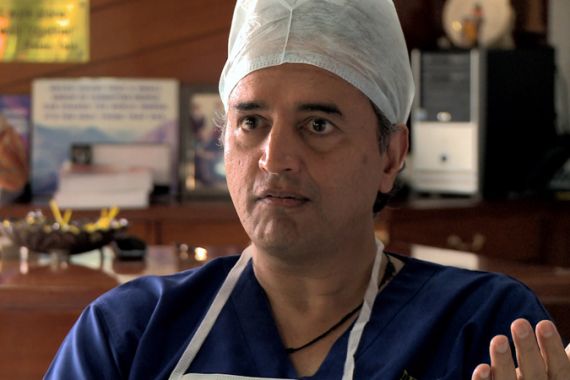
A vision for global healthcare
The founder of the Naraynana Hrudayalaya describes a vision that could see India disassociate healthcare from affluence.
The economy of the 20th century was driven by machines which addressed human toil. But I believe that the economy of the 21st century will be driven by the health sector, which can create millions of jobs for the extremely skilled, the semi-skilled and unskilled workers. These jobs are vital for the stability of society. Lack of employment is the root cause of unrest in the world today.
The health sector is also in a unique position to create millions of jobs for women. A woman coming from lower economic strata becomes empowered when she finds employment. Empowered women will discipline and educate their children, who will in turn have the discipline and desire to build a great nation when they grow up.
Keep reading
list of 4 items‘We need you’: Solomon Islands’ support for US agency’s return revealed
Why are nations racing to buy weapons?
Parallel economy: How Russia is defying the West’s boycott
We believe that India will become the first country in the world to dissociate healthcare from affluence. Ten years down the line we will still have millions of people living in the slums with no amenities. However, they will have access to high-tech healthcare with dignity.
India can do it because India produces the largest number of doctors, nurses and medical technicians in the world. Outside the US, India has the largest number of US FDA approved drug manufacturing units. Our only missing link is that poor people do not have the money to pay for healthcare. This can be addressed by micro-health insurance.
We launched such a scheme eight years ago. The Yeshaswini micro-health insurance scheme proved that with just $0.11 – yes that is just 11 cents – per month we can, for example, even cover the cost of major heart surgery. Yeshaswini now has over three million farmers contributing 22 cents per month. It covers the expenses of 1,650 different varieties of surgeries done on the human body.
We believe that gradually the government will become a health insurance provider rather than just being a healthcare provider. I believe that tax-payers’ money cannot pay for healthcare as life expectancy is increasing.
We are now trying to develop a concept of health insurance through mobile phones. We have 750 million Indians paying at least Rs. 150 (just under $3) per month just to use a mobile phone. If we can charge an extra Rs. 10 ($0.18) per month towards an insurance premium, we will have the world’s largest self-sustaining health insurance scheme.
|
“We run a programme that supports and motivates 2,000 children from rural India to become doctors every year.“ |
I believe that the cost of healthcare in developed countries will not come down unless Asia, Africa and Latin America develop a robust healthcare delivery model. Developing countries will provide the critical volume required for the medical equipment, the disposables, and the drug manufacturers to bring their prices down. This is exactly how the cost of mobile phones dropped significantly.
I believe that the poor quality of healthcare in Africa is not because they are poor but because they do not have an adequate number of institutions to train doctors, nurses and medical technicians.
I would like to build low cost hospitals across Africa and conduct training programmes to train the healthcare manpower that is needed to deliver a high quality provision such as I am already offering in our Bangalore health city. Our intention is to develop a global university to train these health workers.
The World Health Organisation estimates that there is a shortage of four million healthcare workers across the world – a figure we believe is an underestimate.
We already run a programme that supports and motivates 2,000 children from rural India to become doctors every year. Thirteen-year-old children from village schools get a scholarship of $10 per month if they promise to become doctors when they grow up. We also help them get a student loan to finance their education.
It is through innovative schemes like these and others that the healthcare of the entire world’s population can be transformed in the future. This is not just a dream – it is something we are already turning into practical reality here in India as can be seen in this series about our Bangalore health city.
Dr Devi Shetty is a cardiac surgeon and the founder of the Narayana Hrudayalaya Health City in Bangalore, India.
The views expressed in this article are the author’s own and do not necessarily reflect Al Jazeera’s editorial policy.